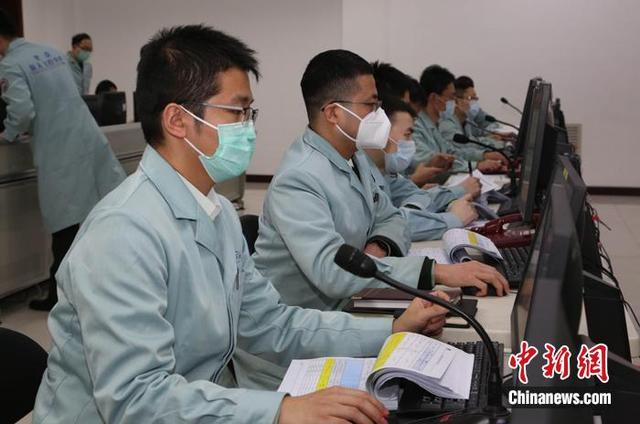Mars probe passes tests for signal transmission
By Zhao Lei | China Daily | Updated: 2020-03-11 09:59

Chinese scientists and engineers finished a major test on Tuesday in Beijing to verify the compatibility between ground control and China's first Mars probe, according to the Beijing Aerospace Control Center.
The center said in a statement sent to China Daily that the test, the first of its kind in the country, successfully examined the signal transmission and interfaces between the ground systems and the robotic probe, which is scheduled to start its journey to the red planet before the end of this year.
Technical plans and statuses as well as related hardware and software were put to comprehensive trial runs, the statement said, adding that all procedures were similar to those that will be used in the mission.
Cui Xiaofeng, head of the center's Mars mission control team, explained that the farthest distance between the Earth and Mars is about 400 million kilometers, so a probe will travel about seven months before it reaches the Martian atmosphere.
During the probe's flight toward Mars, the technical statuses inside the spacecraft's equipment will change.
In addition, the environment in deep space is highly sophisticated.
All of these factors will make command and control very difficult and challenging, he noted.
According to the China National Space Administration, the country's first Martian probe will conduct scientific investigations about the planet's soil, geological structure, environment and atmosphere as well as possible water sources.
Sun Zezhou, the spacecraft's chief designer at the China Academy of Space Technology, said the robotic probe will consist of three parts-the orbiter, the lander and the rover.
The rover will have six wheels and four solar panels and will carry 13 scientific instruments. It will be more than 200 kilograms in weight and will work for about three months on the planet, he said.

Ye Peijian, a leading scientist in deep-space exploration at the China Academy of Space Technology, said the mission will land an unmanned probe on the Martian surface before July 2021.
In the second step of China's Mars exploration program, a larger probe will set off for Mars around 2030 to take samples and then return to the Earth, space officials said.
During the probe's flight toward Mars, the technical statuses inside the spacecraft's equipment will change. In addition, the environment in deep space is highly sophisticated. All of these factors will make command and control very difficult and challenging, he noted.
According to the China National Space Administration, the country's first Martian probe will conduct scientific investigations about the Martian soil, geological structure, environment and atmosphere, as well as water.
Ye Peijian, a leading scientist in deep-space exploration at the China Academy of Space Technology, previously said the Mars mission will be the country's first planetary expedition.
He said the mission will land an unmanned probe on the Martian surface before July 2021.























